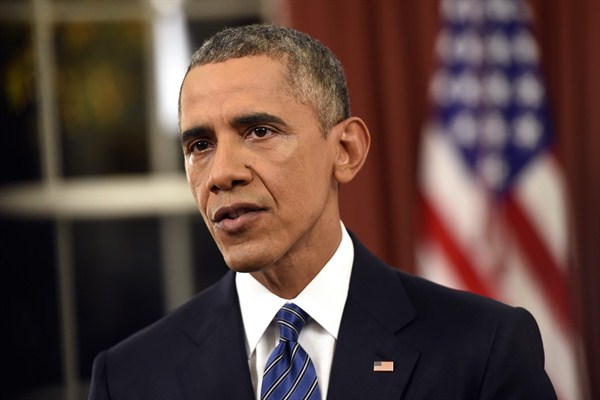President Barack Obama’s oval office speech Sunday was intended to show toughness and resolve in the war against the self-declared Islamic State, and to reassure a jittery public in the aftermath of the domestic attack by followers of the group in San Bernardino, California. At the end of his remarks, however, he reminded Americans to not allow their anxieties about terrorism to turn into hostility toward Muslim Americans. This is not sentimental rhetoric. It’s a critical part of the strategy toward defeating the group that can strengthen America’s social capital at home and soft power abroad.
From Paris to San Bernardino, the mood among terror-targeted populations is hardening as the social stresses rise. All Western societies now feel at risk from the violence of the Islamic State and its followers, even though the group’s capabilities are limited and it does not pose an existential threat in the long run. Pressures from opposition parties in Europe and the U.S., however, are playing on popular fears and trying to equate the Islamic State to the industrial-strength fascism of the mid-20th century. This has led to brutal rhetoric about Islamic extremists that could turn into suspicions of any Muslim with a traditional lifestyle or ties to communities that have produced extremists. Such a path would only make the problem of confronting the Islamic State harder.
Recognizing this, Obama cautioned Americans on Sunday against turning against one another and against turning the war against the Islamic State into a war against Islam. “Muslim Americans,” he emphasized, “are our friends and neighbors, our coworkers, our sports heroes, and yes, they are our men and women in uniform who are willing to die in defense of our country. We have to remember that.”

